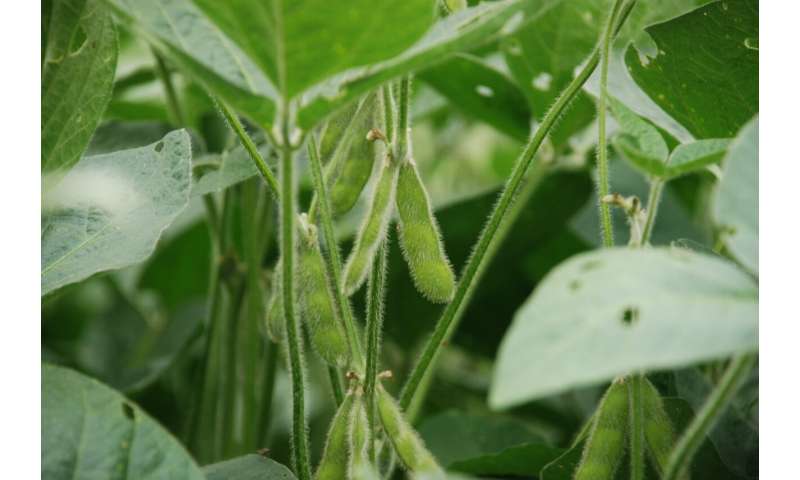Researchers target scalable model for global crop supply chain

Researchers from the University of Tennessee have received a $500,000 grant from the National Science Foundation to tackle the greatest challenges to global food systems. The research specifically targets the U.S.-China wheat and soybean supply chain due to their large trade volume and critical impact on the global sustainability of food, energy and water.
The effort will examine better ways to develop optimal food systems from both an economic and resource-use perspective. Specific challenges include addressing the efficient use of natural resources; developing an efficient policy system that allows for the flow of food product across countries to achieve efficient use of resources; and providing adequate nutrition for a growing global population.
The project is led by Mingzhou Jin, professor and associate head of UT's Department of Industrial and Systems Engineering. Jin is also the director of the Institute for a Secure and Sustainable Environment at UT. Together with UT Institute of Agriculture Blasingame Chair of Excellence Professor Andrew Muhammad, Jin proposed a new methodology for modeling. That proposal, "Coupled Modeling for Sustainability of the Global Crop Supply Chain with a Focus on China-U.S. Interactions" received the funding from the NSF's Innovations in Food, Energy, and Water Systems program. As project co-leader, Muhammad will examine the role that trade plays in making resource use more efficient and in providing safe and nutritious food.
"There's only so much land and so much water," says Muhammad. "As the world grows and you have to feed 20 billion people, what's the best use of that land and water to achieve the goal of not just providing food but safe, nutritious food? No one country can truly supply its own food and achieve that lofty goal, so it has to import food and, in some instances, export the surplus food."
The four-year study will encompass a nexus of food, energy and water systems. "A lot of people think about food systems and how we can provide food but then the question is what is the link to energy systems and renewable and nonrenewable resources?" says Muhammad. An internationally known trade expert, Muhammad will study the trade modeling and trade policy components of the system including price signals and transportation issues—factors that contribute to selling products between the U.S. and China—and determine how economics and policy play a role in the process.
According to the World Trade Organization, China and the U.S. are the biggest players in the international agricultural product chain with $73 billion and $163 billion in exports and $160 billion and $149 billion in imports in 2015, respectively. Their crop systems are also highly coupled, consuming a large amount of energy and water.
Applying a systems approach to the total supply chain formed by China and the U.S., researchers will develop a framework that integrates climatic, economic, governmental, societal and technological changes. The supply chain formed by China and the U.S. will then be used to identify technical, societal and policy solutions to improve the sustainability and resilience of the global crop supply chain.
U.S. soybean producers who have operated under considerable uncertainty in recent years may also realize benefits from this research, as market efficiency provides improved pricing reliability that can eliminate some of the risk and volatility of production agricultural.
Through its mission of research, teaching and Extension, the University of Tennessee Institute of Agriculture touches lives and provides Real. Life. Solutions. ag.tennessee.edu.
Provided by University of Tennessee at Knoxville